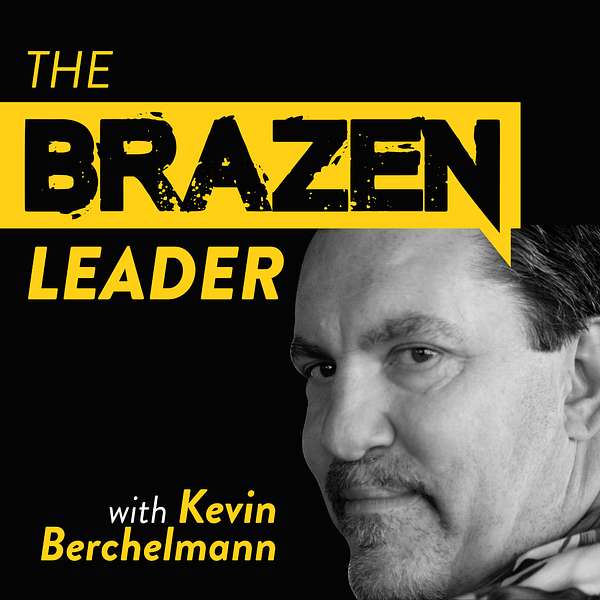
The Brazen Leader
The Brazen Leader
Emotional Intelligence in the Workplace
Use Left/Right to seek, Home/End to jump to start or end. Hold shift to jump forward or backward.
EQ (Emotional Intelligence) is a good thing, right? Goodness knows, all the books, articles and blogs certainly say it is. I half expect to read about Emotional Intelligence ending world hunger, or staving off a devastating hurricane.
I say let’s get a grip, people.
EQ isn’t a do-all-be-all cure to everything that ails us. It’s a personality-based behavior trait with fairly dubious detection methodology (I’ve never met a test/assessment/profile I couldn’t “game”). Further, even if we can accurately detect it, does it always mean something good?
Not in the hands of the wrong person. In fact, it can be downright hazardous to others. Or, at a minimum, a colossal pain in the derriere.
At its core, Emotional Intelligence is about the ability to identify and manage your own emotions and the emotions of others, generally through emotional awareness, an ability to harness and apply emotions, and the ability to manage and/or regulate your emotions to influence others (Psychology Today).
It’s that last part that should concern us. “…and the ability to manage and/or regulate your emotions to influence others.” As my pastor likes to say, let’s unpack that a bit… If you’re really good at controlling your emotions, you are likely adept at hiding your true feelings. About anything. If at the same time you can easily tell what others are feeling, well, the clear line between influence and manipulation can all but disappear.
EQ is simply a measurement—it’s neutral. It can be used for good (to help and support self and others), or it can be used for evil (to advance my needs at the cost of others). In its evil form, EQ is true Machiavellianism-- manipulating others to achieve one's own goals. Selfish, narcissistic. When used in this way, other people become social tools to be used to push oneself forward even at considerable expense to them.
So, what to do? How, then, do we keep Machiavelli at bay while enjoying the potential fruits of enhanced EQ (assuming that’s what we want)? Is there a way to minimize the bad while keeping the good? Here’s a few solutions to consider:
1. Deglamorize EQ. It’s simply a combination of personality traits and coping skills. Lots of EQ research says that 60+% of those with high EQ are successful at their jobs. Well, every U.S. President since Harry Truman has worn black Allen Edmonds shoes. Since I wear black Allen Edmonds shoes, it’s should be just a matter of time before my Secret Service detail arrives, right? Not likely. I’ve got enough skeletons in my closet to do a presentable wave at an NFL game.
That’s the difference between causation and correlation. Just like MBTI and DiSC, simply identifying a set of characteristics or traits doesn’t ensure success any more than my black Allen Edmonds will make me President. My Myers-Briggs ENTJ and my DiSC high-D don’t make me successful… or not. They simply help me and others understand my behavior, as scary as that may be.
2. Closely mentor the high EQs, using proven, positive leadership. If many academics and authors are correct, High Emotional Intelligence could be an indicator of potential, so that’s one reason to mentor them. Another is to make sure that they develop positively. Even well-intentioned pupils will visit the dark side if their role model or example is so inclined. Make sure that doesn’t happen.
3. Finally, call out errant behavior. High EQ folks are sharp. Most have above average intelligence (not the emotional kind), and are adept at fending off those who question their actions. You’ve got to call them out, simply and swiftly, when you see the negative behaviors. Be specific, and explain why the behavior is unacceptable.
Be Brazen, remembering that Grace and Accountability can coexist.
Thanks for listening.